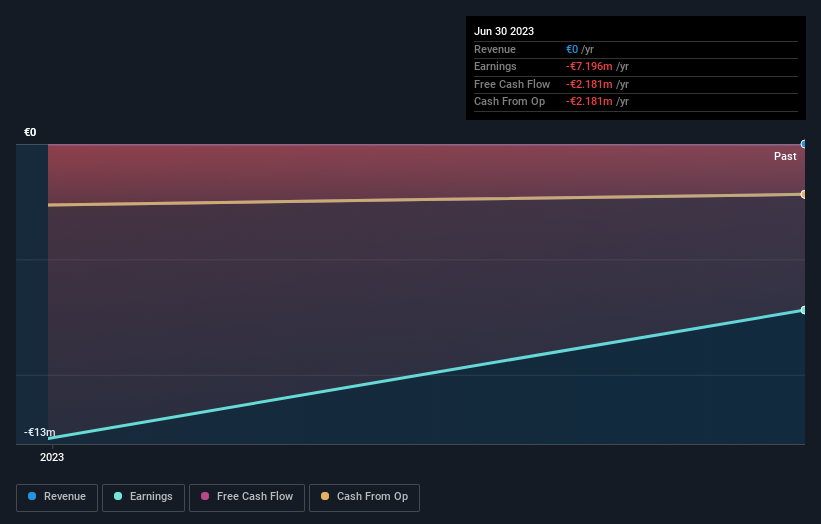Marley Spoon Group SE (ETR:MS1) most popular amongst retail investors who own 39%, insiders hold 29%
Key Insights
Marley Spoon Group's significant retail investors ownership suggests that the key decisions are influenced by shareholders from the larger public
53% of the business is held by the top 8 shareholders
If you want to know who really controls Marley Spoon Group SE (ETR:MS1), then you'll have to look at the makeup of its share registry. The group holding the most number of shares in the company, around 39% to be precise, is retail investors. That is, the group stands to benefit the most if the stock rises (or lose the most if there is a downturn).
And individual insiders on the other hand have a 29% ownership in the company. Institutions will often hold stock in bigger companies, and we expect to see insiders owning a noticeable percentage of the smaller ones.
Let's delve deeper into each type of owner of Marley Spoon Group, beginning with the chart below.
View our latest analysis for Marley Spoon Group
What Does The Institutional Ownership Tell Us About Marley Spoon Group?
Institutional investors commonly compare their own returns to the returns of a commonly followed index. So they generally do consider buying larger companies that are included in the relevant benchmark index.
Marley Spoon Group already has institutions on the share registry. Indeed, they own a respectable stake in the company. This implies the analysts working for those institutions have looked at the stock and they like it. But just like anyone else, they could be wrong. If multiple institutions change their view on a stock at the same time, you could see the share price drop fast. It's therefore worth looking at Marley Spoon Group's earnings history below. Of course, the future is what really matters.
Hedge funds don't have many shares in Marley Spoon Group. The company's largest shareholder is Joh. Berenberg, Gossler & Co. KG, Asset Management Arm, with ownership of 9.7%. With 8.0% and 7.3% of the shares outstanding respectively, 468 Capital II Carry GmbH & Co. KG and Barralina Asset Management GmbH are the second and third largest shareholders.
We also observed that the top 8 shareholders account for more than half of the share register, with a few smaller shareholders to balance the interests of the larger ones to a certain extent.
Researching institutional ownership is a good way to gauge and filter a stock's expected performance. The same can be achieved by studying analyst sentiments. Our information suggests that there isn't any analyst coverage of the stock, so it is probably little known.
Insider Ownership Of Marley Spoon Group
The definition of company insiders can be subjective and does vary between jurisdictions. Our data reflects individual insiders, capturing board members at the very least. Company management run the business, but the CEO will answer to the board, even if he or she is a member of it.
I generally consider insider ownership to be a good thing. However, on some occasions it makes it more difficult for other shareholders to hold the board accountable for decisions.
It seems insiders own a significant proportion of Marley Spoon Group SE. It has a market capitalization of just €205m, and insiders have €58m worth of shares in their own names. It is great to see insiders so invested in the business. It might be worth checking if those insiders have been buying recently.
General Public Ownership
With a 39% ownership, the general public, mostly comprising of individual investors, have some degree of sway over Marley Spoon Group. This size of ownership, while considerable, may not be enough to change company policy if the decision is not in sync with other large shareholders.
Private Company Ownership
It seems that Private Companies own 15%, of the Marley Spoon Group stock. Private companies may be related parties. Sometimes insiders have an interest in a public company through a holding in a private company, rather than in their own capacity as an individual. While it's hard to draw any broad stroke conclusions, it is worth noting as an area for further research.
Next Steps:
It's always worth thinking about the different groups who own shares in a company. But to understand Marley Spoon Group better, we need to consider many other factors. Like risks, for instance. Every company has them, and we've spotted 5 warning signs for Marley Spoon Group (of which 3 are a bit concerning!) you should know about.
Of course, you might find a fantastic investment by looking elsewhere. So take a peek at this free list of interesting companies.
NB: Figures in this article are calculated using data from the last twelve months, which refer to the 12-month period ending on the last date of the month the financial statement is dated. This may not be consistent with full year annual report figures.
Have feedback on this article? Concerned about the content? Get in touch with us directly. Alternatively, email editorial-team (at) simplywallst.com.
This article by Simply Wall St is general in nature. We provide commentary based on historical data and analyst forecasts only using an unbiased methodology and our articles are not intended to be financial advice. It does not constitute a recommendation to buy or sell any stock, and does not take account of your objectives, or your financial situation. We aim to bring you long-term focused analysis driven by fundamental data. Note that our analysis may not factor in the latest price-sensitive company announcements or qualitative material. Simply Wall St has no position in any stocks mentioned.


